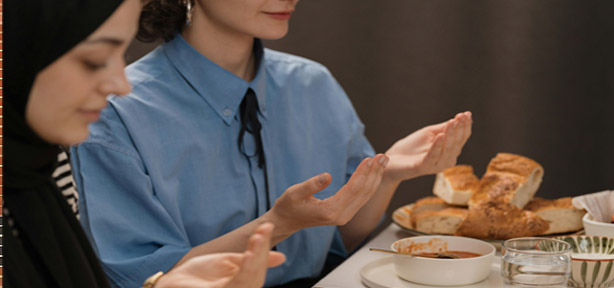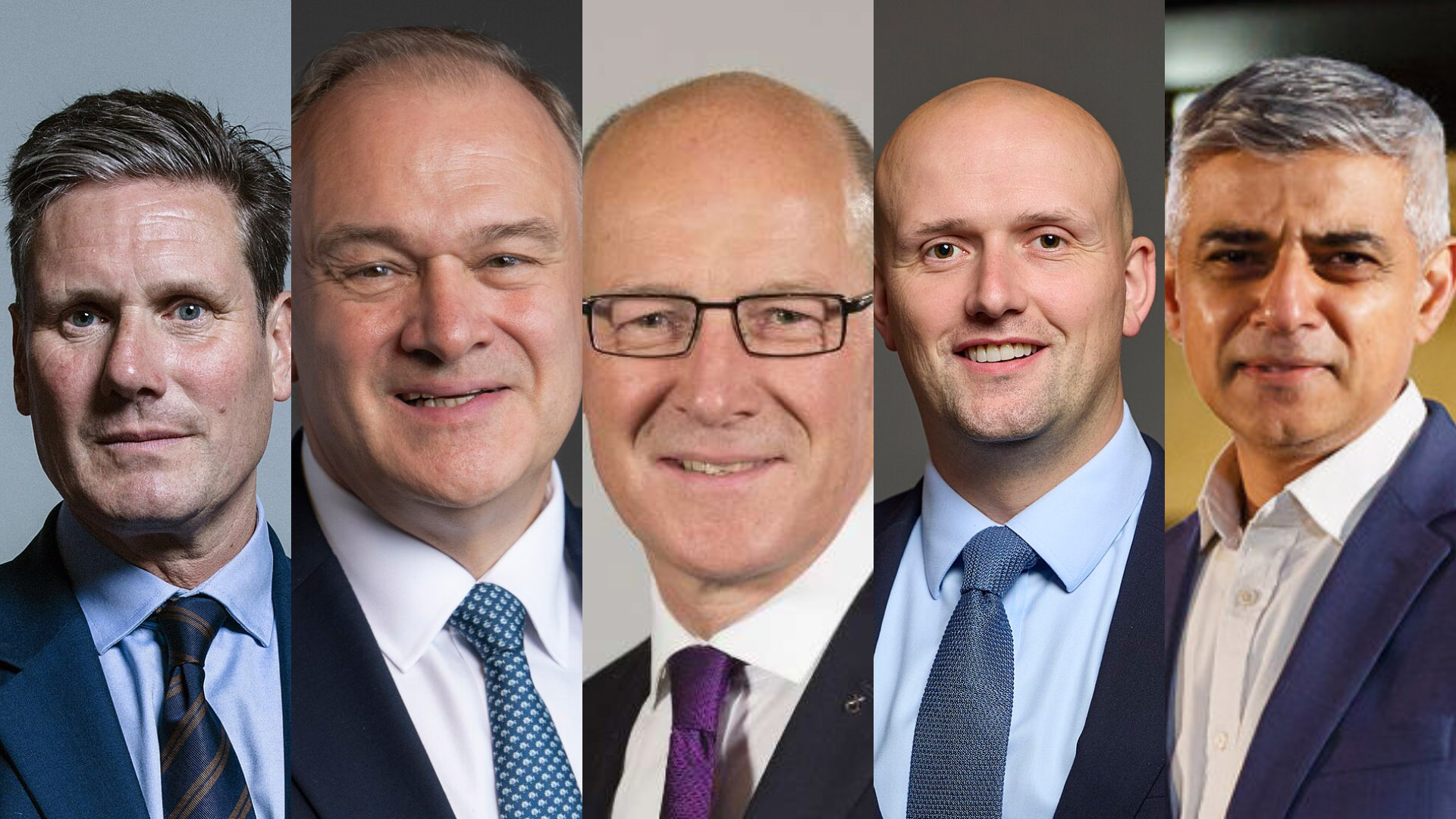
Fatima Raza Hassan
Ramadān is the holiest month in the Islamic calendar, observed by Muslims worldwide as a time of fasting, prayer, and spiritual reflection. From dawn until sunset, those who are able to fast abstain from food, drink, and other physical needs, focusing instead on self-discipline and gratitude while strengthening their connection with God. The month commemorates the revelation of the Qurʾān to Prophet Muhammad (PBUH) and is regarded as a time of immense blessings and mercy.
Beyond fasting, Ramadān is a period of heightened devotion, with many Muslims engaging in extra prayers, Qurʾān recitation, and charitable giving. It is also a time for community and family, as people come together for ifṭār (the meal to break the fast) and suḥūr (the pre-dawn meal). Each person experiences Ramadān differently—some spend more time in the mosque, others prioritize charity work, and many find it a time for personal growth and reflection.
From students balancing studies and fasting to families creating cherished traditions, Ramadān is observed in unique and meaningful ways across the world. This article explores how different people experience Ramadān, what it means to them, and how they spend their days during this sacred month.
I’m really looking forward to Ramadān because it’s a time filled with spiritual growth and cherished moments. I’m excited to see my friends at the mosque daily for ifṭār, enjoy the social events, and have fun together. Reciting daily duʻās, like Duʻā Iftitāḥ helps me feel closer to Allah. I also look forward to teaching the kids at Qurʻān Khānī and sharing the blessings of learning together. The daily lectures from renowned speakers inspire me. Of course, the joy of going out with friends and family for ifṭār makes every evening special. Waking up for sehri with my moody family brings a unique warmth to the mornings. I’m also eager to commemorate the martyrdoms of Imām Alī, and Bībī Khadīja, as well as celebrate the birth of Imām Ḥasan, which adds a deep spiritual significance to the month. And, of course, Laylatul Qadr nights are always a time for reflection and seeking closeness to Allah. It’s a month that truly brings reflection, connection, and growth.
What I like most about Ramadān is the special atmosphere it brings, late-night suḥūr gatherings, breaking our fasts with delicious food, and spending more time with family and friends. There’s something exciting about the change in routine, the peaceful evenings, and even the challenge of fasting itself. I also love the sense of community, whether it’s going to ifṭār events, staying up for late-night talks, or just enjoying the more reflective and spiritual parts of the month. I spend Ramadān juggling fasting, studies, and spiritual reflection. My days are packed with lectures and hospital rounds, so I focus on pacing myself and staying productive. Evenings are the best part: breaking fasts with family or friends, unwinding with good food, and taking time for dua and Qurʾān recitation. I also try to play a sport every day, so after ifṭār and duʻās, I’ll go and have a kickabout with my friends in football or get a badminton or table tennis session in. My mosque usually holds social events for the youth on the weekends until suḥūr, so we usually end up playing some sports, having spiritual discussions, and playing video games too.
I look forward to Ramadān because it helps me appreciate what I have, and it’s a time for self-discipline. What I love most is the sense of community—everyone comes together, whether it’s through sharing meals, praying side by side, or giving to those in need. It’s a month of spiritual growth, where I can strengthen my connection with my faith and reflect on self-improvement. I spend my time focusing on prayer, reading the Qurʾān, and working on initiatives through Survivor Voices to help those in need. It’s a reminder of gratitude, patience, and the power of collective kindness.
Alḥamdulillāh, I’m really looking forward to Ramadān as it’s a month of immense barakah, spiritual purification, and strengthening my connection with Allah. What I love most about Ramadān is the sense of unity in the Ummah—praying in jama’ah, breaking fast together, and increasing in ibadah. It’s a time to renew my intentions, seek forgiveness, and strive for taqwā.
InshāʻAllāh, I will be leading Tarāwīḥ this year, which is a great opportunity for me to solidify my Ḥifẓ and perfect my recitation. I also want to increase my Sadaqah, whether through financial donations or supporting those in need within my community. Alongside running my business, I plan to dedicate my time to Qur’an recitation, dhikr, and making du’a, hoping to make the most of this blessed month. May Allah accept our efforts and grant us all istiqāmah, Āmīn.
I am very much looking forward to the blessed month of Ramadān. During this special Islamic month, I feel it brings me so much closer to Allah and Islam, which is a great blessing. It’s a month filled with self-discipline, reflection and spiritual growth.
I personally appreciate the sense of community during Ramadān. Sharing meals like iftar, getting together with friends and family, collectively going to the mosque together for prayer really enlightens the send of community and strong bonding the religion brings to individuals like ourselves.
There are many ways in which I like to spend my Ramadān. Firstly, reading the holy Qurʾān is one way as it is usually my goal to finish one Qurʾān during Ramadān. It brings me the feeling of peace to my heart, and this closeness to Allah. I also like to visit the mosque to attend gatherings and talks educating myself about Islam. Most importantly, giving charity.
I am looking forward to Ramadān because it’s an amazing way to reconnect with our creator. Living in a western country, it’s easy to forget the importance of our faith, and Ramadān allows us to remember.
One of my favourite aspects of Ramadān is fasting. I love fasting because it allows me to appreciate my fortunate way of life as opposed to those who are living in poverty, war, and third-world countries.
My days during Ramadān typically start by having a meal at sehri alongside a glass of water, followed by Fajr (dawn) prayer. I do as much W recitation as possible depending on my schedule (I aim for 10 verses at Fajr time). I then attend my lectures for the day, or I go to work. I make special time for my prayers during the day. I usually break my fast with my sister at home and then go to the gym and recite more Qurʾān before I go to bed.
I’m looking forward to Ramadān! It’s such a beautiful and special month, for both the individual and within the community. It brings everyone together with the same purpose, creating a sense of unity and self-reflection. It’s a time when we can push ourselves that extra step to strengthen our connection with Allah (swt), and it really reminds us to be grateful for what we have and appreciate the blessings in our lives.
What I love most about Ramadān is the sense of togetherness it fosters. Whether it’s waking up for suḥūr, sharing ifṭār with your neighbours, or praying Tarāwīḥ as a community, it unites the Muslim community like nothing else!
During this Holy Month, I plan to set goals for myself, whether it be finishing the Qurʾān, praying more consistently, or trying to develop better habits, such as fasting beyond just food—by refraining from behaviours like anger and impatience. Also, I aim to increase my charity, whether through giving money, food, or just helping those who need an extra hand. Ultimately, I just want to make the most of every moment while it’s still with us.
(Photo: Gül Işık/Pexels)

